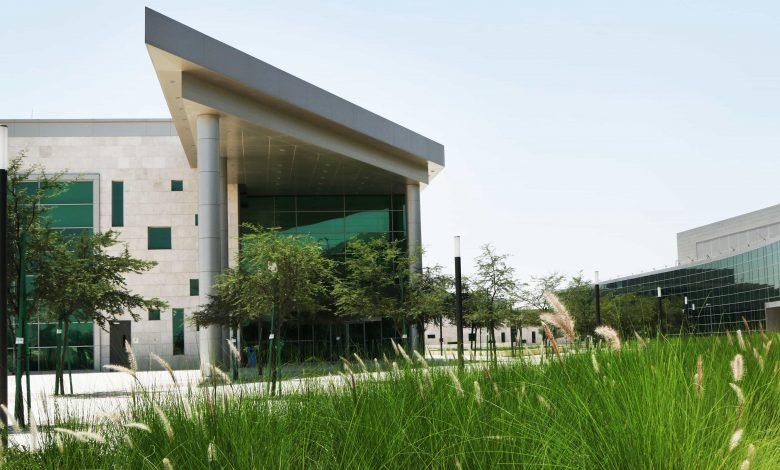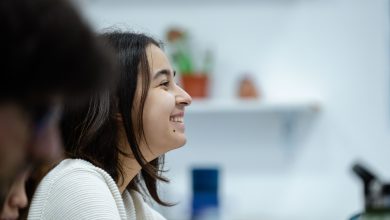
HBKU takes part in Islamic finance conference
جامعة حمد تشارك في مؤتمر التمويل الإسلامي
Gulf Times – Doha:
The president of Hamad Bin Khalifa University (HBKU), Dr Ahmad M Hasnah, participated in the 12th International Conference on Islamic Economics and Finance (ICIEF), hosted online by the Halkali Campus of Turkey’s Istanbul Sabahattin Zaim University, from June 14-20.
Recep Tayyip Erdogan, President of Turkey, delivered the opening address of the conference, which contributed to a better understanding and interpretation of Islamic finance in the context of the theme, ‘Sustainable Development for the Real Economy’.
Speaking during the opening panel, Dr Hasnah said, “In 2020, the world economy witnessed unprecedented circumstances due to Covid-19 outbreak, which has affected all countries across the globe. The pandemic was accompanied by multiple crises, which demonstrated that the current way of managing the global economy still lacks many ethical, social, and economic values, especially in times of crisis management.”
“In light of these situations, it has become increasingly important to employ the principles of Islamic finance and utilise its institutions to formulate policies and manage the economy and businesses. This requires close co-operation between educational and governmental institutions and the private sector to launch forward-thinking and long-term economic strategies and create diversified, secure, and reliable development plans,” he explained
“Ultimately, these plans will support the future growth of the global economy in a sustainable and equitable way. The strategies will also provide economic alternatives based on moral values in the Islamic world, which strike a balance between the individual and state capitalism embraced by the Western and socialist systems,” added the official.
The conference saw the participation of a number of key figures in the world of Islamic economics and finance, including Turkey’s Treasury and Finance Minister, Berat Albayrak, and Pakistan’s Economy Minister, Abdul Hafeez Shaikh.
Topics discussed during the conference included Islamic money and capital markets in Turkey, entrepreneurship, global financial architecture, the digital economy, the non-profit sector, the Fourth Industrial Revolution and sustainable development. More than 130 policy-makers, academics and researchers from over 30 countries presented their papers via videoconferencing, which attracted at least 5,000 online participants from across the globe.
A number of HBKU faculty participated and presented papers at this conference. The College of Islamic Studies hosted the eighth and tenth editions of this event and fully supported the ninth conference, which was also held at Istanbul Sabahattin Zaim University. The partnership is critical for the advancement of Qatar’s ambitions locally, and for the nation to deepen its footprint in the global arena.
Qatar, Malaysia, and the UK, among others, have played host to the conference since it began nearly 44 years ago. With Qatar declared the fifth largest Islamic finance market in the world for 2019, it is best positioned to continue the conversation on how Islamic finance can salvage global economies.
Source: gulf-times
الدوحة – العرب:
شارك الدكتور أحمد مجاهد حسنه، رئيس جامعة حمد بن خليفة، في المؤتمر الدولي الثاني عشر للاقتصاد والتمويل الإسلامي، الذي استضافته جامعة صباح الدين زعيم التركية على شبكة الإنترنت، من حرمها الجامعي بمنطقة هالكالي في مدينة اسطنبول، خلال الفترة من 14-20 يونيو الماضي. وألقى فخامة السيد رجب طيب أردوغان، رئيس تركيا، الكلمة الافتتاحية للمؤتمر، التي ساهمت في الوصول إلى فهم وتفسير أفضل للتمويل الإسلامي في سياق موضوع «التنمية المستدامة للاقتصاد الحقيقي».
قال الدكتور أحمد مجاهد عمر حسنه، رئيس جامعة حمد بن خليفة، في خطابه: «لقد شهد الاقتصاد العالمي خلال العام الحالي 2020 أوضاعاً غير مسبوقة نتيجة لجائحة كورونا (كوفيد – 19) التي ضربت دول العالم، وواكبتها أزمات متعدّدة برهنت على أن الطريقة الحالية لإدارة الاقتصاد العالمي ما تزال تفتقر إلى العديد من القيم الأخلاقية والاجتماعية والاقتصادية، وخصوصاً في أوقات إدارة الأزمات، ومن هنا تزداد أهمية مبادئ الاقتصاد الإسلامي ومؤسساته في صياغة السياسات وإدارة الاقتصاديات والأعمال. ويتطلّب التعامل معها التعاون الوثيق بين المؤسسات التعليمية والحكومية والقطاع الخاص لإطلاق استراتيجيات اقتصادية مستقبلية طويلة الأمد، تدعم النمو الاقتصادي في العالم بطريقة مستدامة ومُنصفة؛ لتقديم بدائل اقتصادية مبنية على القيم الأخلاقية في العالم الإسلامي».وشهد المؤتمر مشاركة عدد من الشخصيات البارزة في عالم الاقتصاد والتمويل الإسلامي، ومن بينهم بيرات البيرق وزير الخزانة والمالية التركي، وعبد الحفيظ شيخ وزير الاقتصاد الباكستاني.
واشتملت الموضوعات التي طُرِحت للنقاش خلال المؤتمر على أسواق المال ورأس المال الإسلامي في تركيا، وريادة الأعمال، والهيكلة المالية العالمية، والاقتصاد الرقمي، والقطاع غير الربحي، والثورة الصناعية الرابعة، والتنمية المستدامة.
وقدَّم أكثر من 130 مشاركاً من صانعي السياسات والأكاديميين والباحثين، من أكثر من 30 دولة، أوراقهم البحثية باستخدام تقنية «فيديو كونفرانس»، بحضور ما لا يقلّ عن 5000 مشارك عبر الإنترنت من جميع أنحاء العالم.
وشارك عدد من أعضاء هيئة التدريس بجامعة حمد بن خليفة في المؤتمر وقدّموا أوراقهم البحثية فيه.
وكانت كلية الدراسات الإسلامية بجامعة حمد بن خليفة قد استضافت النسختين الثامنة والعاشرة من هذا المؤتمر، وقدّمت دعماً كاملاً للنسخة التاسعة، التي عُقدت أيضاً في جامعة صباح الدين زعيم بمدينة اسطنبول.
وتُعدّ هذه الشراكة في غاية الأهمية لتقدّم طموحات دولة قطر على الصعيد المحلي، وللأمة أيضاً؛ حيث ستساعدها في تعميق بصمتها في الساحة العالمية.
وكانت دول قطر، وماليزيا، والمملكة المتحدة، وغيرها من الدول، قد استضافت هذا المؤتمر منذ انطلاقه للمرة الأولى قبل 44 عاماً تقريباً. ومع الإعلان عن كون دولة قطر خامس أكبر سوق للاقتصاد الإسلامي في العالم خلال عام 2019، تحظى بوضع مثالي يمكّنها من مواصلة الحوار حول الدور الذي يمكن أن يؤديه نظام التمويل الإسلامي لإنقاذ الاقتصاد العالمي.
المصدر: alarab



